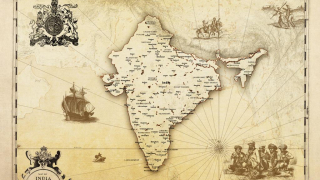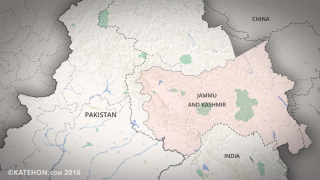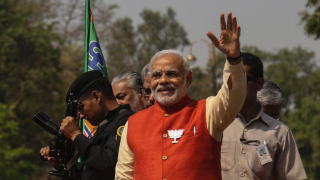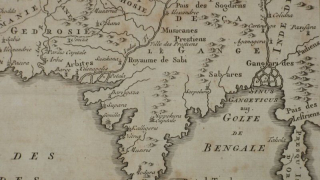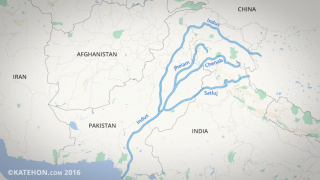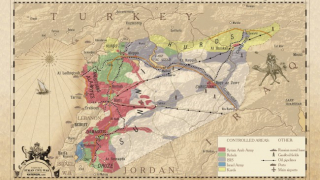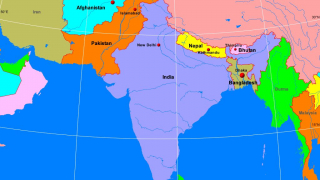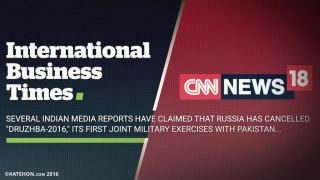Khalistan Movement: Lest We Forget
03.09.2019
Khalistan, meaning 'Land of the Pure' is the name selected by the disenfranchised, disgruntled, marginalised and alienated Sikh people in India for a separate homeland for the Sikhs. The movement initiated to achieve this objective is known as the Khalistan Movement. Khalistan movement is a separatist movement in nature which is deep rooted in history. Not only does this movement hold political significance but it has strong religious importance for the followers of Sikhism as well (as derived by traditions set up by the Guru Gobind Singh in 1699). Khalistan movement is not just another movement that the state of India is taking lightly or just brushing aside. It is grounded in the concept of Khalsa, which provides the political, social and religious vision for the Sikh community.
According to Dr. Shinder Purewal of Kwantlen University, the Sikh movement against the State of India consists of 3 phases till date. The first phase was initiated for Home Rule in the early 1960s. It lasted till 1978. This movement was for the creation of a province strictly for the Punjabi people. The Sikh political party "Akali Dal" spearheaded this movement and maintained the maximal position of Khalistan, an autonomous state within India. After the trifurcation of Punjab after the passing of Punjab Reorganisation Act in 1966 and the defeat of Akali Dal in 1972 Punjab Elections, Akali Dal put presented the 'Anandpur Sahib Resolution' in 1973. The document included religious and political demands of the Sikh community. The second phase of the Sikh movement began in 1978 and continued till the early 1990s. The second phase commenced properly in 1982 with the Akali Dal joining hands with Sikh separatist leader Jarnail Singh Bhindranwale and the launching of their joint venture of Dharam Yudh Morcha for the implementation of Anandpur Sahib Resolution. The second phase of the movement had the element of militancy and state-sponsored terrorism which resulted in a large number of deaths and chaos in Punjab. The third phase stated from 1994 and continued well into the first half of the second decade of the 21st century. This phase constituted purely of political, religious and social grievances of the Sikh community of India.
However, the Sikh movement have now entered into its fourth phase. The struggle for a separate homeland by the Sikh community of India is pursuing its goal in a non-violent, peaceful manner but after the ascent of the Hindu-extremist Bharatiya Janata Party (BJP) to power in India, the movement is being portrayed as a foreign agenda and a militant movement by the state.
In the calls for Khalistan, there are two distinct narratives. One narrative subscribes to the events within India and the other relates to the role of the Sikh diaspora living in Europe and North America. But, as a victim of addiction, India has always blamed Pakistan for supporting Sikh community in strengthening the Khalistan movement. Pakistan, as usual, has assured India multiple times that it has nothing to do with the movement. Pakistan despite its warm relations with Sikh community all over the world has banned all activities regarding Khalistan movement within its territory.
The Indian state is blaming Pakistan for the worsening situation in Punjab, just like it has been doing in the case of Indian Occupied Kashmir (IOK). The Indian state, rather than acknowledging the fact that the main reason being the events in India for unrest in Punjab (as well as in IOK), subjects to a blame-game against Pakistan to hide its own nefarious designs and avoid the issue by superficially camouflaging matters as foreign propagated.
If someone is to be blamed for the creation of Khalistan Movement it is the Indian state. The marginalizing attitudes of the state towards Sikh community in particular led to the suppression of their basic rights and alienation of this community which has contributed a great deal in the progress of India.
The Khalistan movement would never have taken a violent shape if the initial demands that its leaders put forward to the Indian government would have been acknowledged and accepted. After all, the most that was demanded was the devolution of more power from the center to the state, Sikhism to be declared a separate religion from Hinduism, increased share in irrigation waters coming from the north (as Punjab is the agrarian hub), and the return of Chandigarh from the Union to Punjab state. Instead, the Indian state responded by trifurcating Punjab, stripping the state from more autonomy as compared to the little it possessed earlier and state oppression and state-sponsored terrorism in the form of Operation Blue Star.
Time and again it has been proved that Pakistan was not responsible for Khalistan movement as India likes to think. For example, back in September 1981, when an Indian passenger plane was hijacked by Sikh militants and forced the pilots to land in Lahore, the Pakistani government apprehended the militants and tried them under the law as per procedure. As mentioned earlier, Pakistan had banned all Khalistan related activities on its territory. Recent example of Pakistan's non-involvement is Pakistan's decision to ban all campaign activities for 'Referendum 2020' as well where Sikhs are planning to conduct a referendum in 2020 on the issue that whether they want to be a part of India or want a separate state known as Khalistan. Canada, Britain and some European countries are supporting this referendum.
Since India is not left with any cause to blame Pakistan for the Khalistan movement, it is now trying to politicise the Kartarpur Corridor and trying to portray it as another Pakistani ploy to create unrest in India. Pakistan has rejected this stance. India needs to recognize that Pakistan holds numerous relics, holy shrines and monuments of the Sikh faith. Pakistan cannot and will never stop the Sikh community around the world from visiting its holy places and practicing religious rights.
It has now become clear that pro-Khalistan organizations like AISSF, Babbar Khalsa, WSO, ISYF, are all supported by Sikh diaspora in UK, Canada, US and other countries. Diaspora is supporting the Khalistan movement morally, financially and diplomatically. A large number of Sikh population is living outside India. Almost 500,000 in UK and Canada, and approximately 250,000 in US. Sikhs are a vibrant and dynamic community abroad with established businesses, community linkages, and political relationships with a soaring rate of literacy. Many are serving outstandingly in foreign governments such as Canada and Great Britain. The Sikhs have been raising a voice for their rights from the very start without any foreign help and assistance, and now, that struggle is strengthening by every passing day.
During cricket World Cup 2019, a group of Sikh protestors raised pro-Khalistan slogans during the India Vs New Zealand semi-final. It attracted the attention of public and international media as well. UK supported the Sikh protestors to carry out the whole promulgation. Purpose of this protest was to internationalize the Khalistan issue. Same thing happened before during India's cricket match with Sri Lanka as well where "Justice for Kashmir" slogans were chanted by spectators.
Regardless of how the Khalistan movement will shape up in near future but one thing is for sure that it is the result of India's own oppressive and marginalizing policies towards its minorities and that Pakistan is not behind this movement. The Sikh community in India have genuine grievances and legitimate concerns that deserve to be acknowledged and addressed. Rather than carrying out "Israel-like" moves of brutally silencing all voices that are raised for their rights, the Indian state should adopt a peaceful course and stop blaming Pakistan for its indigenously created ills. India should stop demanding from Pakistan vis-a-vis the Sikh community because Pakistan has a large Sikh population living in Pakistan as well, besides having half of the most significant places of Sikh faith.
Pakistan has its own principled stance of matters and will never accept Indian dictation on internal matters. It believes in minority rights and religious freedom. Pakistan, as a state is proud of its Sikh community and vice versa. Before pointing fingers at Pakistan, India should look internally for its problems. It will surely find answers there.


